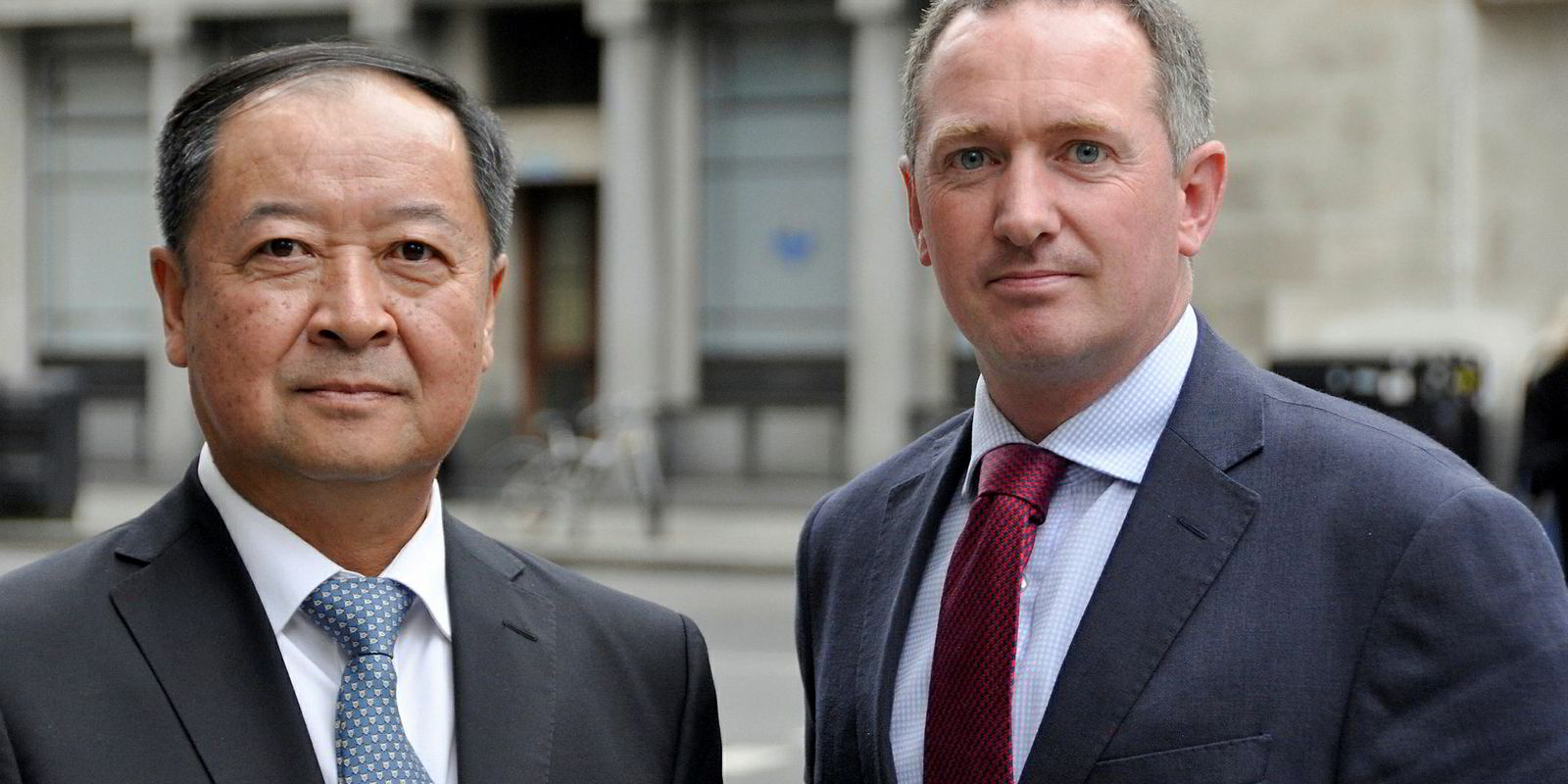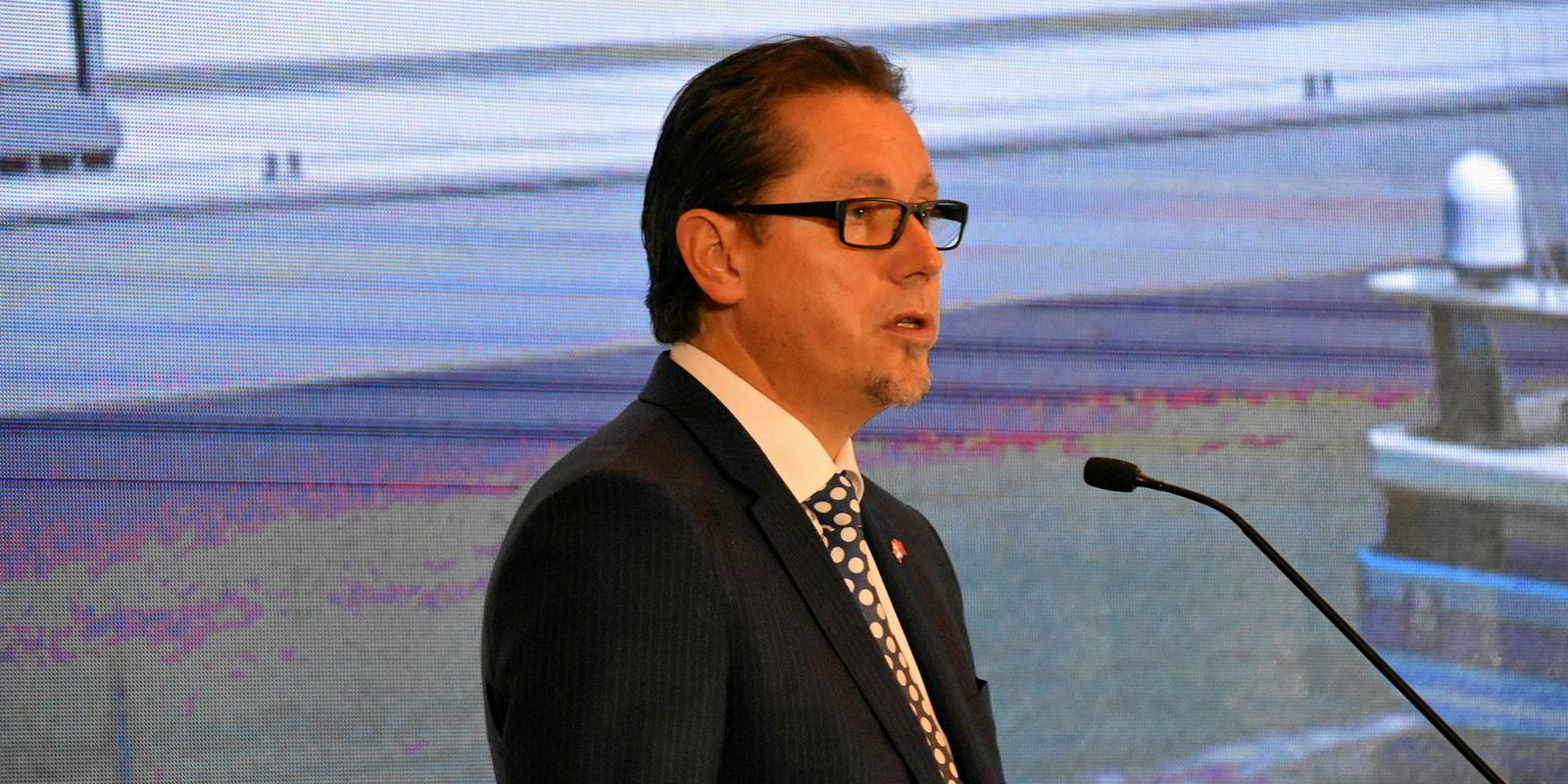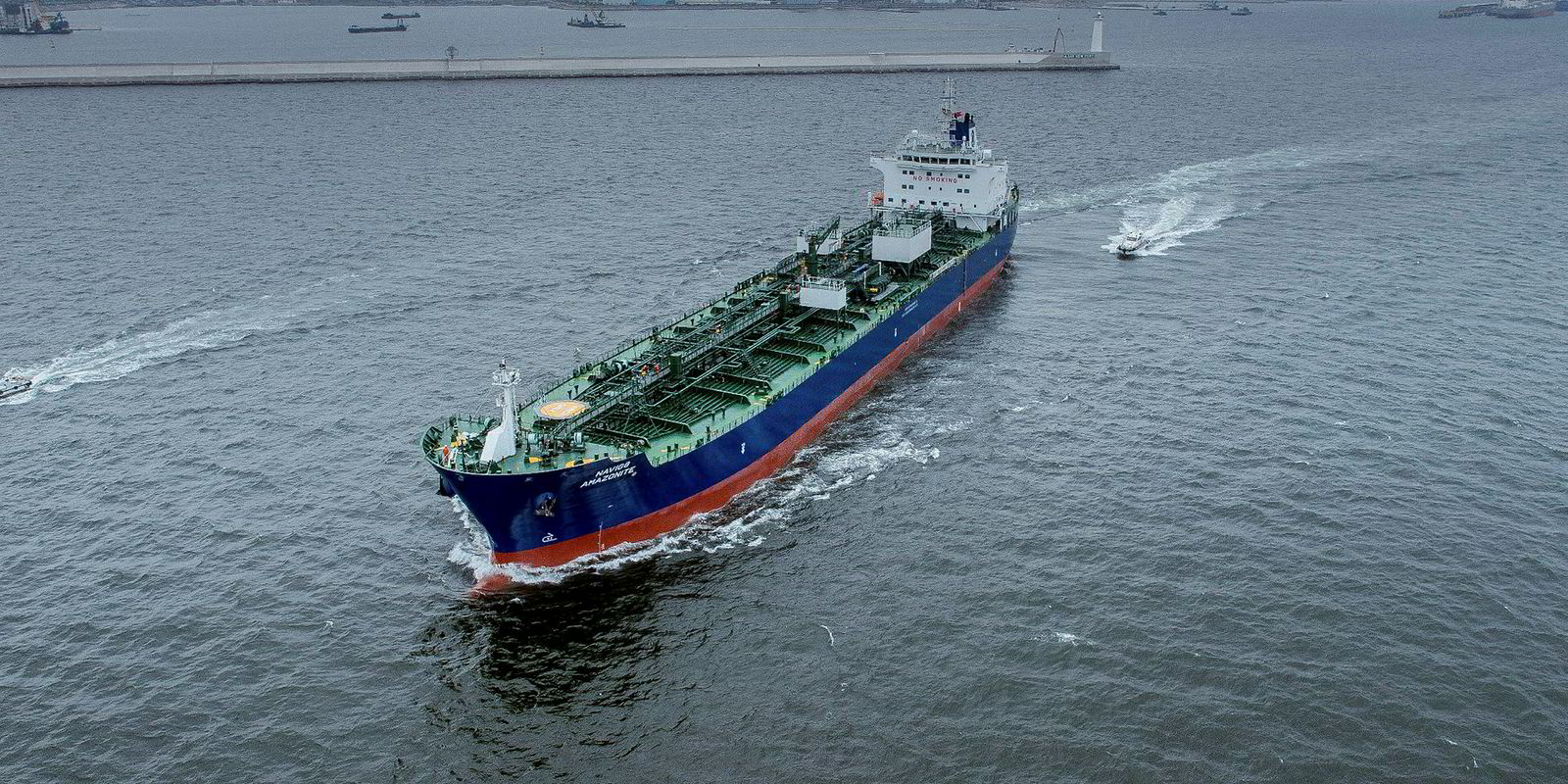DNV GL is shipping’s largest classification society, at least based on the traditional gross tonne form of measurement, according to the latest statistics from the International Association of Classification Societies (IACS).
In its 2018 annual report anIACS data review of its 12 member class societies shows DNV GL is the largest with a classed fleet of 278.3 million gt.
This puts it well ahead of closest rival Japan’s ClassNK, which comes in at 246.5 million gt, followed by ABS weighing in at 235.8 million gt.
Gross tonnes is a measure of a ship’s internal volume and is the principle measure by which commercial ships are defined.
However on a deadweight tonne basis (dwt) - a measure of cargo capacity - the positions are reversed.
ClassNK comes top of the pile with 395.2 million dwt on its books, followed by ABS with 374 million dwt and DNV GL ranked third with 364.2 million dwt.
The picture is confused even more when looking at ship numbers.
France’s Bureau Veritas comes top with 10,212 ships under its class.
However many of the BV classed fleet are described as “other ship types” not part of the dry bulk, tankers and containerships that make up the majority of IACS member’s work.
DNV GL was formed in 2012 through the merger of Norway’s Det Norske Veritas and Germany’s Germanischer Lloyd (GL) and since then has been generally regarded as shipping’s largest class society.
IACS’s 2018 annual report celebrates the organisation’s 50th anniversary.
Its figures show its 12 members continue to dominate the classification of the world fleet covering 1.21bn gross tonnes out of a world fleet of 1.25bn gross tonnes.
The London based organisation comes up with unified technical regulations and standards for ship safety and works closely with the IMO on the development of regulation.
It has a rigorous quality standards system for membership and is currently working in areas such as cyber security and autonomous shipping.
Current IMO secretary general Kitack Lim said described IACS as the “un-sung hero” of the shipping industry.
He said: “IACS’ 50th anniversary is a remarkable achievement by any standards but especially so for a purely technical body operating as a not for profit organisation in a landscape that is evolving and changing like never before.
“From both the perspective of the shipping industry and the governments that regulate it through IMO, IACS is indispensible.”
IACS secretary general Robert Ashdown said the organisation is ready for the “sweeping” changes now happening in the shipping industry such as automation, big data and environmental concerns.
He said changes had been made that would enable IACS to “act with the necessary speed, flexibility and agility to ensure it remains properly positioned for the longer term.”





